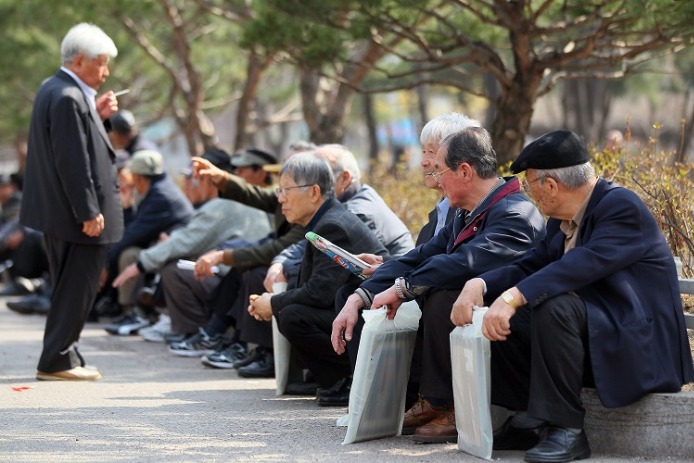One in five South Koreans is now 65 years old or older as the Asian country grapples with the demographic challenge of a rapidly aging population and the world’s lowest birthrate. The Ministry of the Interior and Safety said on Tuesday that the country has officially joined the super-aged nations, with 20% of its population surpassing the age of 65. Korea is the second country in Asia to reach that milestone after Japan. According to the UN, any country with more than 7% of the population 65 or older is an aging society, a country with over 14% of the age group is classified as an aged society, and a country with more than 20% a super-aged society. As of Monday, Korea had 10.24 million inhabitants aged 65 and older, accounting for 20% of its total population of 51.22 million. The proportion of people aged 65 and older in the national population registry first surpassed 10% in 2008. The ratio steadily increased to 14.02% in 2017 and exceeded 19% earlier this year, hitting 20% before the year’s end. The number of people aged 65 and older more than doubled in just 16 years, rising from 4.95 million in 2008 to over 10 million this year. Lee Sang-rim, a senior researcher at the Population and Aging Society Research Center at Seoul National University, stated, “The government must come up with various measures, including the establishment of the population strategy planning department, which is currently under consideration.” Korea entered the aging society classification in 2000 and became an aged society in 2017. According to the ministry, of the 10.24 million Koreans aged 65 and above, 5.69 million were women, while 4.54 million were men. Seoul accounted for 19.4% of the total super-aged population in the country. Statistics Korea had previously projected that the country would become a super-aged society in 2025. Korea has the world's lowest birthrate, with a total fertility rate that slid to a historic trough of 0.7 in 2023. Major conglomerates are making efforts to boost the fertility rate, but these have yet to yield significant results.
South Korea becomes super-aged society faster than expected

